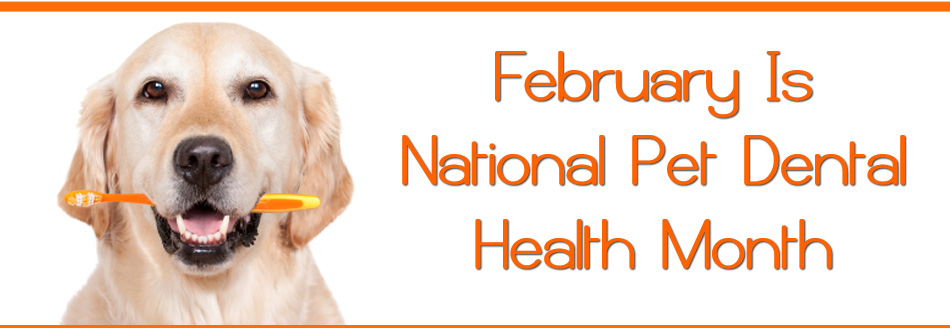PET DENTAL HEALTH MONTH 2020
February is National Pet Dental Health Month and Goodness for Pets wants to raise awareness about pet dental care. Proper dental hygiene is as important to your pet’s health as is nutrition and exercise. Pets, both dogs and cats, benefit from a good oral care regimen. Learn the warning signs of dental disease, the benefits of dental health and explore innovative solutions to this common problem.
Signs of Pet Dental Disease
A large percentage of pets develop some form of oral disease beginning as early as age 3! The most common dental condition in dogs and cats is gingivitis. Left unchecked, gingivitis leads to periodontal gum disease. Initially, bacteria, food particles and saliva combine and collect in between the gums and teeth, which hardens into tartar. Above the gum line, it is easily visible. Plaque and tartar below the gum line is damaging and can set the stage for infection and damage to the gum tissue that connects the teeth to the jawline.
Some of the main signs of dental disease are:
- Halitosis/Bad breath
- Pawing at the mouth
- Excessive drooling
- Swelling under the eye
- Yellow/brown teeth
- Red or inflamed gums
Reasons To Be Proactive
Serious consequences can occur when your pet’s dental health is not maintained and can lead to more severe secondary diseases like heart or kidney infection. And it is painful! Take a proactive approach to pet dental health and realize many benefits:
- Prevent periodontal disease
- Avoid loose teeth
- Alleviate pain
- Increase lifespan
- Improve breath
- Whiter teeth
- Save on vet dental cleanings
- Avoid anesthesia
5 Ways to Improve Pet Dental Health
- Brush! It may seem daunting at first but with patience and plenty of rewards, you can turn brushing your pet’s teeth into a pleasurable experience. It may take several weeks or months to train your pet to be comfortable with tooth brushing but it is achievable.
- Embrace dental toys, chews treats, raw vegetables and uncooked bones. Knotted, sisal or hemp rope toys help dogs and cats clean their teeth. Give chews daily!
- Conduct an oral inspection on the first day of each month (or on the last, just pick a monthly date). Look for bumps, inflamed gums, bleeding, loose teeth, plaque and tartar build-up.
- Use all natural supplements in powder and treat form that address dental issues systemically with tartar breaking seaweed.
- Avoid dental products containing Xylitol as it is highly toxic to dogs and harmful to cats. Never use human toothpaste. It contains fluoride. Dogs and cats do not spit!
Take Action!
Armed with the causes, risks and benefits of pet dental health, it is now time to develop a dental health program for your pet that works for everyone involved. We can help! We assist customers on a daily basis with formulating a plan that, when followed as directed, can add years to your pet’s life. Stop in during National Pet Dental Month and do your pet a great service! We look forward to assisting you!
